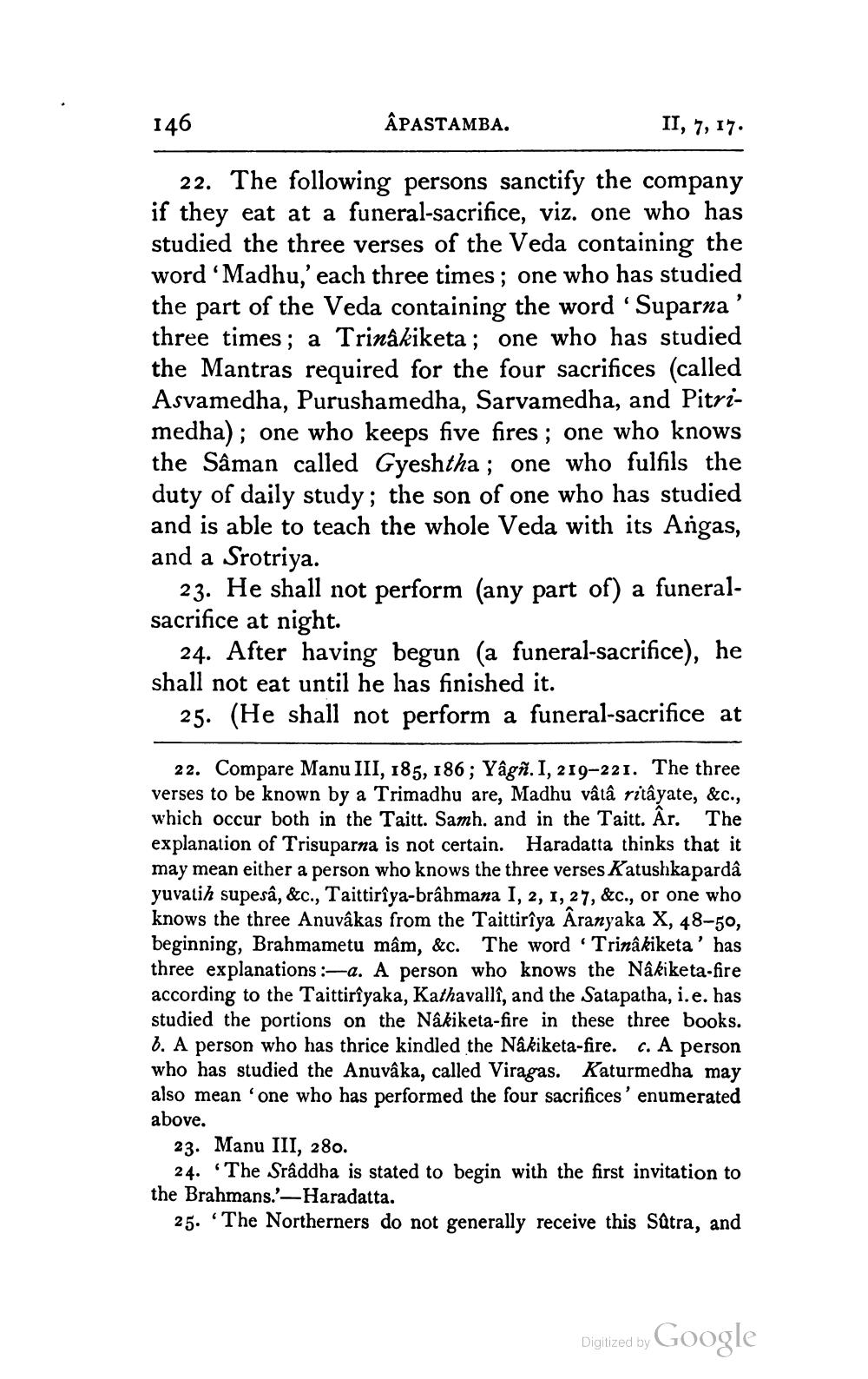________________
146
ÂPASTAMBA.
II, 7, 17.
22. The following persons sanctify the company if they eat at a funeral-sacrifice, viz. one who has studied the three verses of the Veda containing the word 'Madhu,' each three times; one who has studied the part of the Veda containing the word 'Suparna' three times; a Trinâkiketa; one who has studied the Mantras required for the four sacrifices (called Asvamedha, Purushamedha, Sarvamedha, and Pitrimedha); one who keeps five fires; one who knows the Sâman called Gyeshtha ; one who fulfils the duty of daily study; the son of one who has studied and is able to teach the whole Veda with its Argas, and a Srotriya.
23. He shall not perform (any part of) a funeralsacrifice at night
24. After having begun (a funeral-sacrifice), he shall not eat until he has finished it.
25. (He shall not perform a funeral-sacrifice at
22. Compare Manu III, 185, 186; Yagñ. I, 219-221. The three verses to be known by a Trimadhu are, Madhu vâtâ ritâyate, &c., which occur both in the Taitt. Samh, and in the Taitt. Ar. The explanation of Trisuparna is not certain. Haradatta thinks that it may mean either a person who knows the three verses Katushkapardâ yuvatih supesâ, &c., Taittirîya-brâhmana I, 2, 1, 27, &c., or one who knows the three Anuvâkas from the Taittirîya Aranyaka X, 48-50, beginning, Brahmametu mâm, &c. The word 'Trinâkiketa' has three explanations :-a. A person who knows the Nâkiketa-fire according to the Taittiriyaka, Kathavallî, and the Satapatha, i.e. has studied the portions on the Nakiketa-fire in these three books. 6. A person who has thrice kindled the Nakiketa-fire. 6. A person who has studied the Anuvâka, called Viragas. Katurmedha may also mean 'one who has performed the four sacrifices' enumerated above.
23. Manu III, 280.
24. The Sraddha is stated to begin with the first invitation to the Brahmans.'-Haradatta.
25. 'The Northerners do not generally receive this Satra, and
Digitized by Google




